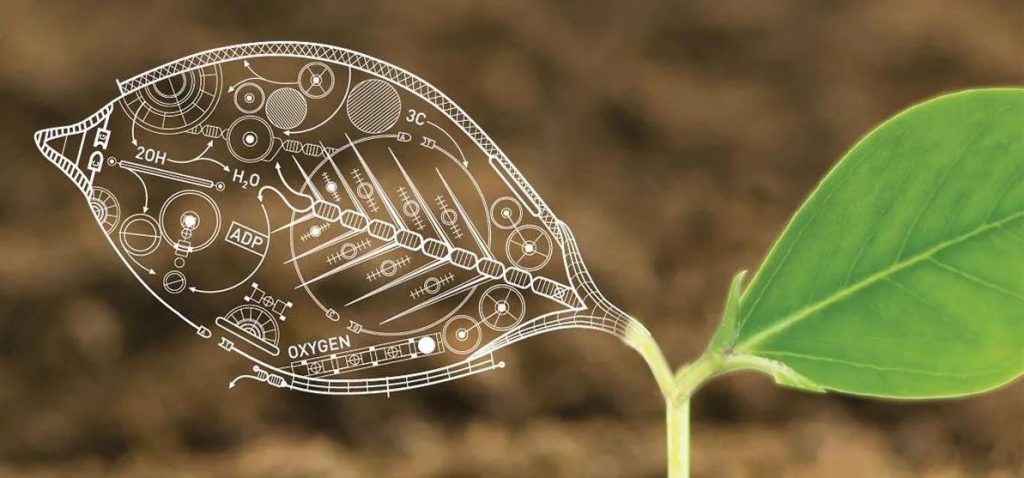Table of Contents
Synthetic biology is an interdisciplinary field that combines biology, engineering, and computer science to design and construct new biological entities or redesign existing biological systems for useful purposes. By manipulating the fundamental building blocks of life—DNA, proteins, and cells—synthetic biology aims to solve some of the world’s most pressing challenges, from healthcare to environmental sustainability. This article explores the role of synthetic biology, its potential applications, and the ethical considerations it raises.

1. What is Synthetic Biology?
Synthetic biology is a rapidly evolving field that builds on the principles of genetic engineering but goes a step further by designing and constructing entirely new biological components and systems.
- Foundations in Genetic Engineering: Traditional genetic engineering involves the modification of an organism&8217;s genetic material to achieve desired traits. Synthetic biology, however, is more ambitious. It seeks to create new organisms or biological systems that do not exist in nature, by assembling genetic parts, known as &8220;biobricks,&8221; in novel ways.
- Interdisciplinary Approach: The field draws on advances in molecular biology, computer science, and engineering. By using computational models to design genetic circuits and employing engineering principles to standardize biological components, synthetic biology allows for the creation of complex biological systems that can perform specific tasks.
2. Applications of Synthetic Biology
The potential applications of synthetic biology are vast, with implications for medicine, agriculture, energy, and environmental protection.
- Healthcare Innovations: One of the most promising applications of synthetic biology is in healthcare. Scientists are developing synthetic organisms and engineered cells that can detect and treat diseases at the molecular level. For example, synthetic biology is being used to design bacteria that can target and destroy cancer cells, deliver drugs precisely to diseased tissues, or even produce therapeutic compounds within the body.
- Gene Therapy and Synthetic Biology: Synthetic biology is advancing gene therapy by creating custom genetic sequences that can be inserted into patients&8217; cells to correct genetic disorders. This approach has the potential to treat a wide range of diseases, including genetic conditions like cystic fibrosis and muscular dystrophy.
- Agriculture and Food Production: Synthetic biology holds promise for revolutionizing agriculture by creating crops that are more resilient to pests, diseases, and environmental stresses. Additionally, it is being used to develop lab-grown meat, a sustainable alternative to traditional livestock farming, which could help reduce the environmental impact of food production.
- Synthetic Microorganisms in Agriculture: Engineered microorganisms are being developed to enhance soil fertility, promote plant growth, and reduce the need for chemical fertilizers and pesticides. These synthetic organisms can be tailored to specific crops and environmental conditions, leading to more sustainable farming practices.
- Environmental Sustainability: Synthetic biology offers innovative solutions to environmental challenges, such as pollution and resource depletion. For instance, synthetic organisms can be designed to break down plastic waste, clean up oil spills, or capture carbon dioxide from the atmosphere.
- Biofuels and Renewable Energy: Synthetic biology is also contributing to the development of biofuels, which are renewable energy sources derived from biological materials. By engineering microbes that can efficiently produce biofuels from biomass, synthetic biology could reduce reliance on fossil fuels and lower greenhouse gas emissions.
- Industrial Biotechnology: In the industrial sector, synthetic biology is enabling the production of chemicals, materials, and pharmaceuticals through biological processes. These processes are often more sustainable and cost-effective than traditional methods, as they rely on renewable resources and generate less waste.

3. Ethical and Safety Considerations
While synthetic biology holds immense potential, it also raises important ethical and safety concerns that must be carefully considered.
- Biosafety and Biosecurity: The creation of new organisms through synthetic biology poses potential risks to both human health and the environment. There are concerns about the unintended release of synthetic organisms into the wild, where they could disrupt ecosystems or transfer engineered genes to other species. As a result, rigorous biosafety measures and regulatory frameworks are needed to minimize these risks.
- Ethical Implications of &8220;Playing God&8221;: The ability to create new forms of life raises profound ethical questions about the boundaries of human intervention in nature. Critics argue that synthetic biology could lead to unforeseen consequences, including the potential for misuse in bioterrorism or the creation of harmful organisms. Additionally, there are concerns about the commodification of life, as synthetic biology could lead to the patenting and commercialization of genetically engineered organisms.
- Societal Impact and Inequality: The benefits of synthetic biology are not guaranteed to be evenly distributed. There is a risk that wealthy nations and corporations could dominate the field, leading to increased global inequality. Ensuring equitable access to the benefits of synthetic biology, particularly in areas like healthcare and food production, is crucial to addressing these concerns.
4. The Future of Synthetic Biology
The future of synthetic biology is both exciting and uncertain. As the field continues to advance, it will likely play an increasingly important role in addressing global challenges.
- Advancing Biotechnology: Ongoing research and development in synthetic biology are expected to lead to new breakthroughs in biotechnology, with applications that we can scarcely imagine today. From personalized medicine to sustainable energy solutions, synthetic biology has the potential to transform many aspects of our lives.
- Regulation and Governance: As synthetic biology evolves, so too must the regulatory frameworks that govern its use. International collaboration and transparent governance are essential to ensuring that synthetic biology is developed and deployed responsibly.
- Public Engagement and Education: Engaging the public in discussions about synthetic biology is vital to ensuring that its development aligns with societal values and priorities. Education and outreach efforts can help demystify the science behind synthetic biology and foster informed debate about its potential benefits and risks.

Conclusion
Synthetic biology represents a powerful tool for shaping the future of life on Earth. By enabling the design and creation of new biological systems, it offers solutions to some of the most pressing challenges facing humanity. However, the potential risks and ethical dilemmas associated with synthetic biology must be carefully managed through robust regulation, public engagement, and ongoing research. As the field continues to advance, it holds the promise of unlocking new possibilities for improving health, sustainability, and quality of life worldwide.
